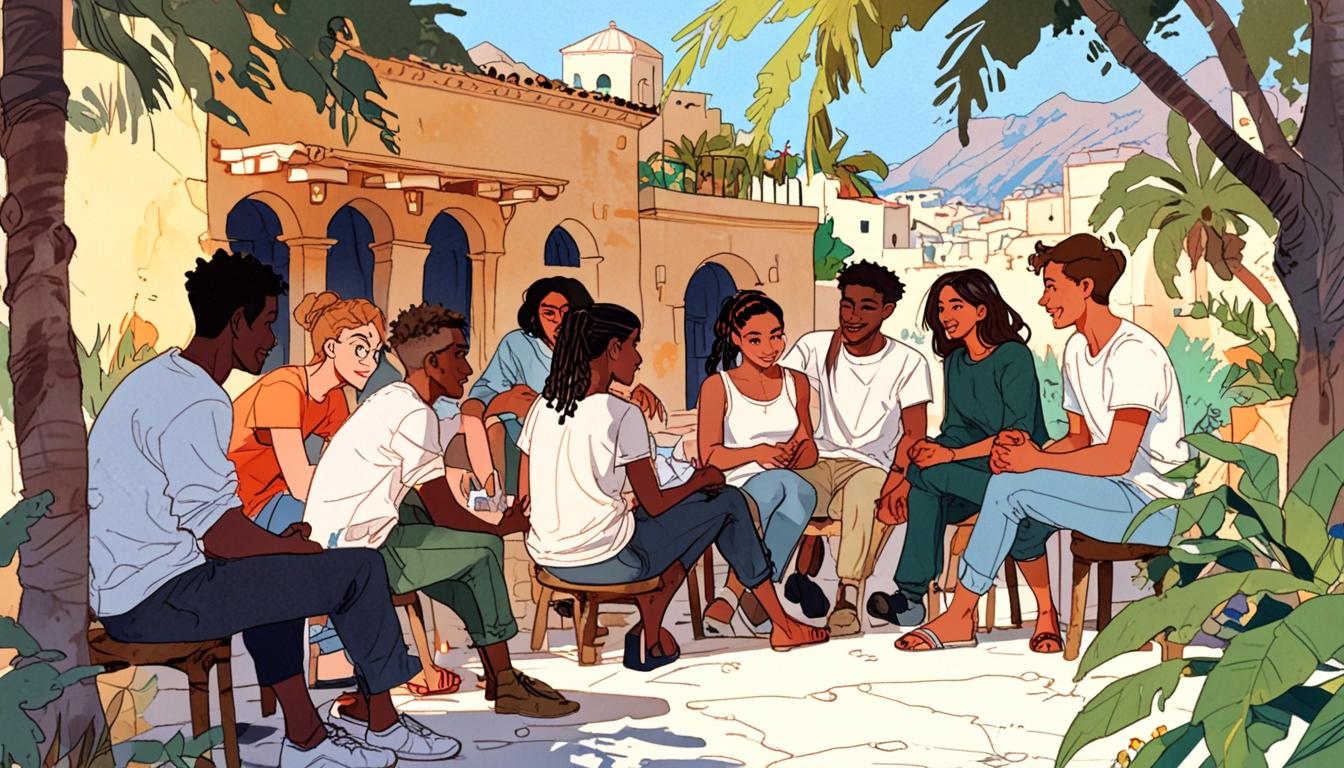On the surface, Channel 4's Virgin Island raises a plethora of ethical concerns. The show features 12 individuals, mostly in their 20s, embarking on what is labelled a “radical retreat” on a Mediterranean island. This vibrant backdrop becomes the setting for a deep dive into their complex relationships with intimacy, orchestrated by a team of self-styled “sexperts.” While the premise appears to flirt with sensationalism—the idea of exposing personal sexual struggles for the cameras—the underlying investigation into modern attitudes towards virginity and sexual experience makes for a thought-provoking watch.
The show's premise draws upon empirical research that highlights a growing trend among young adults, with statistics revealing that one in eight individuals remain virgins by the age of 26. This data is further echoed by findings from a comprehensive study involving over 5,000 participants, which indicated that sexual inactivity is particularly pronounced among certain demographics, including males and those reporting poor health. As the show grapples with these societal pressures, it delves into the psychological ramifications of those feeling left behind in a world saturated with burgeoning intimacy.
Despite initial apprehensions about voyeurism and potential exploitation, Virgin Island surprisingly demonstrates a level of empathy and support for its participants. Each individual recounts personal narratives replete with feelings of isolation, apprehension, and body image issues. For instance, Jason, a 25-year-old with a fear of physical touch, and Emma, a self-conscious 23-year-old fast food worker, each represent segments of a demographic uncertain about intimacy and connection. Such storytelling cultivates a collective spirit among participants who initially believe they are alone in their struggles.
The programme adopts a British dry humour that softens its more cringe-inducing aspects, such as engaging in what is described as "simulation therapy." Viewers may wrestle with how they perceive activities labelled as educational yet bordering on absurd, such as role-playing as animals or undertaking “sensual exercises.” Yet, this method reflects an earnest effort to combat deep-seated shame surrounding sexuality and intimacy that many of the participants grapple with, fostering understanding rather than reinforcing stereotypes.
However, the initial episodes do not shy away from addressing larger cultural questions about virginity and intimacy. The participants’ candid discussions provide a refreshing counter-narrative to the often reductive views of relationships and sexual experiences pervasive in popular media. There is a palpable courage in their willingness to bare their vulnerabilities on-screen, eager to illuminate the struggles others might silently endure. As the journey unfolds, signs of personal growth become evident—participants begin to challenge their fears and commence a process of self-acceptance.
In contrast to previous Channel 4 shows, such as 40-Year-Old Virgins, which similarly addressed themes of delayed sexual experiences through the lens of individual narratives, Virgin Island aims to expand the discussion. It does not merely seek to portray virginity as a badge of shame, but instead navigates the myriad psychological and societal factors contributing to intimacy issues. Critics have raised concerns that the show could reinforce negative stereotypes or trivialise the complexities of sexual relationships, yet its more introspective moments suggest a broader ambition beyond mere entertainment.
As the participants navigate through guided workshops, including innovative techniques like sexual surrogacy, they challenge traditional notions of intimacy and connection whilst striving for personal milestones. Their journey may evoke a range of reactions, from scepticism to admiration, yet it undeniably sheds light on the contemporary struggles faced by many young adults today.
In summary, while Virgin Island has the potential to stir debate regarding its methods and representations, it ultimately reflects a nuanced exploration of intimacy that resonates in today's society. With continued episodes yet to unfold, the programme encourages viewers to reconsider preconceived notions about sexual experience, promoting an atmosphere of understanding and connection that could, indeed, enrich the conversation surrounding intimacy.
Reference Map
- Paragraph 1: 1
- Paragraph 2: 1, 6
- Paragraph 3: 1, 3, 6
- Paragraph 4: 1, 5
- Paragraph 5: 1, 3, 5
- Paragraph 6: 1, 4, 5
- Paragraph 7: 1, 4, 5
- Paragraph 8: 1, 2, 4
Source: Noah Wire Services
